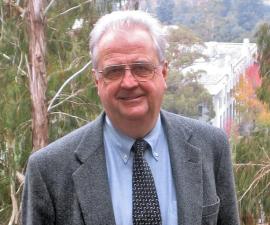

Research Expertise and Interest
nuclear chemistry, nuclei, radioactivity, isotopes
Research Description
Research in the Cerny group centers on the study of the properties and decay schemes of exotic proton-rich nuclei and on the search for new modes of radioactive decay, such as two-proton radioactivity. Professor Cerny's experimental program is concentrated at Lawrence Berkeley National Laboratory's 88-Inch Cyclotron and utilizes its many high-energy beams of ions ranging from protons to uranium. Current research projects of the group involve high resolution determinations of decay schemes of beta-delayed proton and two-proton emitters; accurate mass measurements of nuclei far from stability; and spectroscopic studies involving the detection of unbound nuclei such as 2He, 11N and 14F as reaction products. The group also uses the newly-completed Berkeley Gas-Filled Separator (BGS) to search for new proton- or alpha-particle emitting isotopes in the region of the Chart of Nuclides near lead. Recently the Cerny Group has lead the effort to develop a radioactive ion-beam capability at the 88" Cyclotron via the Berkeley Experiments with Accelerated Radioactive Species (BEARS) initiative. Short-lived radioactive isotopes are produced at the LB Biological Isotope Facility, transported as a gas through a 300 meter-long capillary to the 88" Cyclotron, injected into the main ion source and accelerated as an ion beam. Upon completion of the BEARS activity-handling system in August 1999, this coupled-cyclotron facility produced 1x108 11C ions/sec on target for nuclear experiments. As of August 2001, BEARS also provides a beam of 7l second 14O. Studies in nuclear astrophysics and on nuclei far from stability are commencing with this new capability. We have completed the first set of experiments and are currently developing new detector systems for studying exotic nuclear reactions made possible by BEARS.